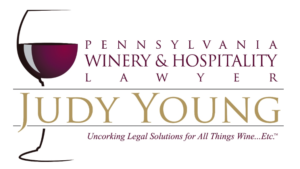Starting or running a successful restaurant or hospitality business can be extremely overwhelming. You need more than just your desire and passion to excel. Careful preparation is key to avoiding making painful mistakes along the way. Because, at the end of the day, diners vote with their forks. And…you want them to vote for you.
overwhelming. You need more than just your desire and passion to excel. Careful preparation is key to avoiding making painful mistakes along the way. Because, at the end of the day, diners vote with their forks. And…you want them to vote for you.
Getting the vote of your customers means your food or wine business enterprise will need to emerge as a success. If you currently own or plan to own your own restaurant, small chef eatery, catering, wine business or food selling dynasty here are a few good tips that will help you avoid some unnecessary pitfalls as you grow your successful hospitality enterprise.
A solid business plan is your roadmap to your future. Make sure you have one. A good solid business plan will help you to focus on your location, your anticipated customer base, and what measurable goals you’ll need to make to turn a profit. While you may be an awesome chef, caterer, or wine entrepreneur your ability to stay in business is also a function of your ability to control your costs. A business plan will help you to identify and track your goals and how well you are doing. A good business plan will cover a general description of your business, your financial management and marketing plans.
Develop a cash flow statement. A cash flow statment will project when you will need to borrow money, hustle for more business or reduce your debts. It will also guide you as to when you need to make those much needed capital investments and improvements into your business.
Carefully preserve you credit. Do not borrow for payroll or short term needs. These should be taker from your current cash flow.
Build a relationship with your bank. When it comes time to deal with loans or lines of credit, having a friendly relationship with your banker can be extremely beneficial.
If you feel you lack an appropriate business skill set because your real love is your focus on your food, then be sure to retain the right lawyer to look over your business contracts and to conduct your contract negotiations.
You may want to create a Partnership with another individual or entity not just for and injection of money, but for sound business advice. Alternatively you may want to enlist the services of a business or restaurant consultant who specializes in the restaurant industry. This can be a good resource to develop your ideas or help you to implement a successful business strategy.
Develop good employee relations standards. Pursue a good understanding of your federal, state and local labor laws. You want to avoid unfavorable legal action taken against you by knowing how these laws affect the way you need to conduct your business on a daily basis.
Visit your local planning department in your municipality to educate yourself on applicable zoning, parking, signage, noise, sewage and other requirements that you’ll need to know to cut through the red tape necessary to operate your business.
If you plan to serve liquor in your restaurant you’ll need to protect your business investment by ensuring that you’re properly protected from suits filed by 3rd parties for damages or injuries caused by patrons imbibing in your establishment. Invest in liquor liability training procedures for you and your restaurant staff.
If you incorporate these tips into the daily operation of your business, you will be well on your way to running a successful hospitality enterprise. Keep you eyes on the prize and remember the big picture. Success won’t just be measured in metrics alone but will be expressed with the people connections you make with your food. Now go out there and get your votes.
After-all, you’re taking care of business.


 years since the launch of Pennsylvania Winery and Hospitality Lawyer. Its been a real joy and a blessing to serve the needs of the Pennsylvania wine and hospitality community. As 2015 approaches, we look forward to serving your future legal needs. We hope your new year is filled with good health, happiness, and cheer.
years since the launch of Pennsylvania Winery and Hospitality Lawyer. Its been a real joy and a blessing to serve the needs of the Pennsylvania wine and hospitality community. As 2015 approaches, we look forward to serving your future legal needs. We hope your new year is filled with good health, happiness, and cheer.
 at the beginning of every year to discuss their desire to open their own winery, restaurant, or other wine based business. We typically discuss how to best proceed in their mission. I listen respectfully as they share their dreams and passions. We talk about the hard work, the diligence and the finanacial committment that will be necessary to fulfill their dreams. Some of these entrepreneurs to be, discover that they more romantic hobbyists than entrepreneur, abandoning the dream along the way. Others non-committers speak their dreams out loud, failing to act, while watching at a distance as others take their dreams and implement the very dream they thought they once had but for their own failure to act.
at the beginning of every year to discuss their desire to open their own winery, restaurant, or other wine based business. We typically discuss how to best proceed in their mission. I listen respectfully as they share their dreams and passions. We talk about the hard work, the diligence and the finanacial committment that will be necessary to fulfill their dreams. Some of these entrepreneurs to be, discover that they more romantic hobbyists than entrepreneur, abandoning the dream along the way. Others non-committers speak their dreams out loud, failing to act, while watching at a distance as others take their dreams and implement the very dream they thought they once had but for their own failure to act.  I am routinely approached by people who have an idea to open a new winery, restaurant, catering business or other wine and hospitality business. Many of these persons often consider entering their new business venture with a family member or friend.
I am routinely approached by people who have an idea to open a new winery, restaurant, catering business or other wine and hospitality business. Many of these persons often consider entering their new business venture with a family member or friend. catering, or wine based hospitality business is a critical step. Your corporation is responsible for the debts and liabilities of your wine or hospitality business shielding your personal assets separate from those of your business. But once the business formation process is complete, your job isn’t finished. You must ensure that your Corporation or LLC entity remains in compliance so that your “corporate veil” is not pierced, making you personally liable for the debts of your wine or hospitality business.
catering, or wine based hospitality business is a critical step. Your corporation is responsible for the debts and liabilities of your wine or hospitality business shielding your personal assets separate from those of your business. But once the business formation process is complete, your job isn’t finished. You must ensure that your Corporation or LLC entity remains in compliance so that your “corporate veil” is not pierced, making you personally liable for the debts of your wine or hospitality business.  overwhelming. You need more than just your desire and passion to excel. Careful preparation is key to avoiding making painful mistakes along the way. Because, at the end of the day, diners vote with their forks. And…you want them to vote for you.
overwhelming. You need more than just your desire and passion to excel. Careful preparation is key to avoiding making painful mistakes along the way. Because, at the end of the day, diners vote with their forks. And…you want them to vote for you.  to have longer “happy hours”. The bill is aimed at giving restaurants and bars greater flexibility and would also allow them to sell more wine to patrons for off premise consumption at offsite catering events.
to have longer “happy hours”. The bill is aimed at giving restaurants and bars greater flexibility and would also allow them to sell more wine to patrons for off premise consumption at offsite catering events.